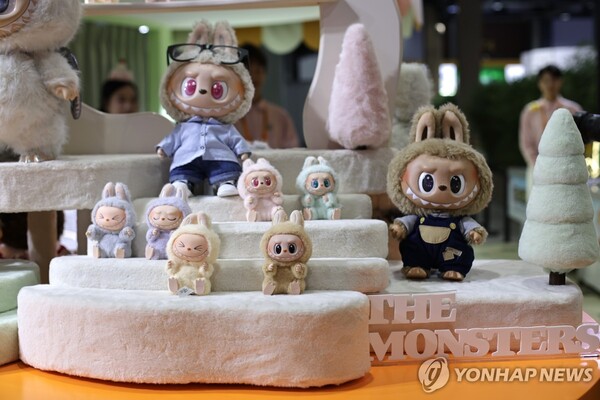Shift toward ‘non-functional satisfaction’ drives Pop Mart and lifestyle brands to prime retail space while luxury sales decline

China’s retail landscape is undergoing a noticeable transformation as consumers increasingly prioritize emotional satisfaction over functionality in their spending. This shift is reshaping the composition of major shopping malls, placing art toys and lifestyle-oriented brands in spaces once reserved for luxury labels.
According to a recent report by the South China Morning Post (SCMP), a Pop Mart store — known for its popular art toy character Labubu — is set to open early next year on the first floor of a major shopping mall in Wuhan, Hubei Province. The location is significant: the shop will occupy the former Air Jordan retail space, directly facing a Prada boutique and adjacent to Tiffany & Co.
SCMP notes that brands such as Pop Mart, Jellycat, and Toptoys are increasingly securing high-profile mall spaces. While overall consumer spending in China has softened, shoppers appear more willing to pay for purchases that deliver emotional connection or sensory delight.
Jackie Zhu, a researcher at JLL China, describes this trend as a rise in “non-functional consumption,” explaining that it encompasses categories like collectible designer toys, premium tea beverages, fragrances, and camping equipment. “Shoppers are seeking products that make them feel good, rather than products that simply serve a practical purpose,” Zhu said.
China’s overall consumption slowdown helps explain why these emotional consumption categories are gaining ground. Following the pandemic, the country’s economy has faced weakened demand. According to the National Bureau of Statistics, retail sales rose just 3% year-on-year in September — the slowest pace in nearly a year.
Luxury goods have been among the hardest hit. Bain & Company estimates that China’s luxury market peaked in 2021 at 471 billion yuan (approximately USD 65 billion), but has since contracted by roughly 20%. A further 2–5% decline is projected this year.
Meanwhile, brands driven by emotional or cultural cachet have surged. Pop Mart recorded a 245% year-on-year revenue increase in the third quarter, while beverage chain Mixue Bingcheng expanded sales by 39% during the same period.
As luxury sales falter, shopping malls that rely on high-end brands for foot traffic are experiencing rising vacancy rates and declining rental income. Nationwide mall vacancy rates reached 10.5% at the end of September, compared to below 8% before the pandemic. In China’s four major cities — Beijing, Shanghai, Guangzhou, and Shenzhen — vacancy rates have also climbed steadily since 2019.
Average retail rent has likewise declined. A study by China Index Academy found that average commercial rent in 16 key urban districts fell 6% compared to 2019 levels.
According to KPMG China retail head Anson Bailey, new store openings across the country have slowed dramatically. Total newly completed mall floor space this year is estimated to be only 25% of the 2021 level.
The result is clear:
China’s shopping malls are shifting from being temples of luxury consumption to curated environments for emotional experience. The center of gravity has moved from “status display” to “personal joy.”

